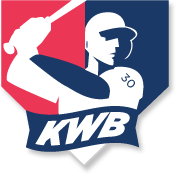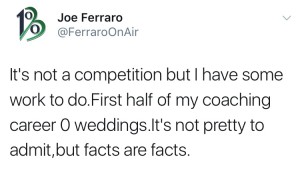When I see most hitting instruction today, I see instructors teaching technique and players trying to apply that technique to their swing. The player feels mostly awkward at first and frustrated much of the time, and it is generally accepted as the only way to learn. And I’m here to argue that pushing a philosophy of frustration and complex jargon onto a player is not only wrong, it’s irresponsible.
But rest assure there is a greater understanding among many professional hitters in the game today that the mind should be relatively free from instruction while you are swing the bat – at least during the game itself.
Psychologists confirm that most of us learn more in our first five years than in all the rest of our lives. And children don’t have to try to learn; they simply do so. Until adults teach them otherwise, learning is so natural for children that they don’t even know it’s happening.
And they have fun doing it.
In my experience, there is a different and more natural approach to learning – awareness. Using awareness to focus the attention on what you are doing instead of telling you what you should be doing. If you haven’t read the conversation of HOW an MLB All-Star got back on track without ever talking about launch angles or exit veo, stop reading this article and check it out, here. This approach shows if you use awareness instruction, you can learn most hitting technique directly from experience without being taught.
Simply put, this is a more empowering way for the hitter to learn.
Has Something Gone Wrong with the Way We Learn?
Baseball is a tremendous platform from which we can teach life lessons. Which brings up some concerns I have for the institutional education that we receive here in the United States.
One of the biggest concerns I have seen in regards to players understanding how to learn is the reality that institutional education has overemphasized conceptual learning to such a degree that the value of, and the trust in, the natural process of learning directly from experience has been seriously undermined.
Think of the mind as an empty box that naturally gets filled with information. What conceptual learning is only concerned with is filling that box with concepts and theoretical information.
The word education comes from the Latin word educare, meaning to “lead out” and indicates that the potential intelligence sought already exists within us and needs to be drawn out. This drawing out by a coach, teacher or environment is the primary function of true education.
When teaching the physical skills of the swing, learning through direct experience should take priority over learning through formal instruction in concepts.
Learning From Experience
Experience itself is the primary teacher, and each individual must learn directly from their own personal experience. Another person’s experience, through teaching and instruction, can be helpful only if it doesn’t’ compromise a player’s all-important relationship with their own direct experience.
Which brings me back to awareness. Awareness is the primary faculty we have for knowing and learning from our experience. Where we focus our attention determines what we learn.
The biggest complaint I get from hitters today is their hitting coach does not take the time to get to know how they like to swing the bat. Coaches are notorious for developing their own jargon and assuming that everyone speaks their language.
Their language is filled with should’s and should not’s. They seem more like commands rather than suggestions. While the coach may think he is helping the player out, he doesn’t realize that most of the time, he is creating doubt within the player.
The doubt comes from the player feeling like he has to live up to the expectations of the coach – doing it his way. The player may understand completely what the coach is telling him, but his body doesn’t. Without muscle knowledge of the instruction, the player finds himself unable to meet his own or his teacher’s expectations, creating doubt.
It’s easier for coaches to see what’s wrong in a player’s swing, than to know which particular correction should be focused on in a given development process. Hence, you get an experience like this:
Less Is More
Over the years, I have been accused of being too simple, not giving enough information to the hitter, or a player feeling cheated because I’m not telling them what they should or shouldn’t be doing. Why? Because before working with me, most had been so accustomed to “power coaching” that they were cheated out of recognizing their own potential for learning.
I often say, “I can’t teach you anything, but I can make you think.” The method to my madness tends to put players in another frame of mind – one that engenders a mode of learning that is free of doubt, frustration and discouragement. It creates a natural state of learning which strengthens the player’s faith in his own capacity to learn from experience. My only role is to help him focus on the most relevant parts of his experience.
For example, you will frequently hear me tell a hitter in the cage that “I don’t care where the ball goes.” I overemphasize this because the hitter has been raised to be concerned about the result.
The over concern with results produces tension and loss of touch/feel, which makes achieving the goal more difficult. By taking his focus off the result and putting it on the purpose, feel and experience, I can help him naturally accomplish the very same results he’s wanted in the first place. Sounds crazy right?
Just another reminder that Hitting is simple. It’s just not that easy.
Create awareness in not only yourself but those around you. Allow the experience to be your best teacher. Most of our problems come from trying to correct problems and when we stop trying to correct them, they just fix themselves.
Love,
KW
For more than a decade, Kevin Wilson has been one of the most respected hitting coaches in the game. He works behind the scenes as a private hitting consultant to some of the best hitters in Major League Baseball. In 2013, Kevin was the hitting coach for the USA Baseball 18U National Team. Team USA beat Japan for the Gold medal at the IBAF World Cup in Taichung, Taiwan.
He is the author of the Amazon #1 Best Seller The #GoodBatting Book and co-hosts a popular podcast, KWB Radio, that showcases unique conversations with the pros. If you want Kevin to speak at your next event or if you want take advantage of his popular 2-day KWB Experience for players and coaches, contact Kevin today!
Follow Kevin on twitter @KWBaseball and visit his website KWBaseball.com

